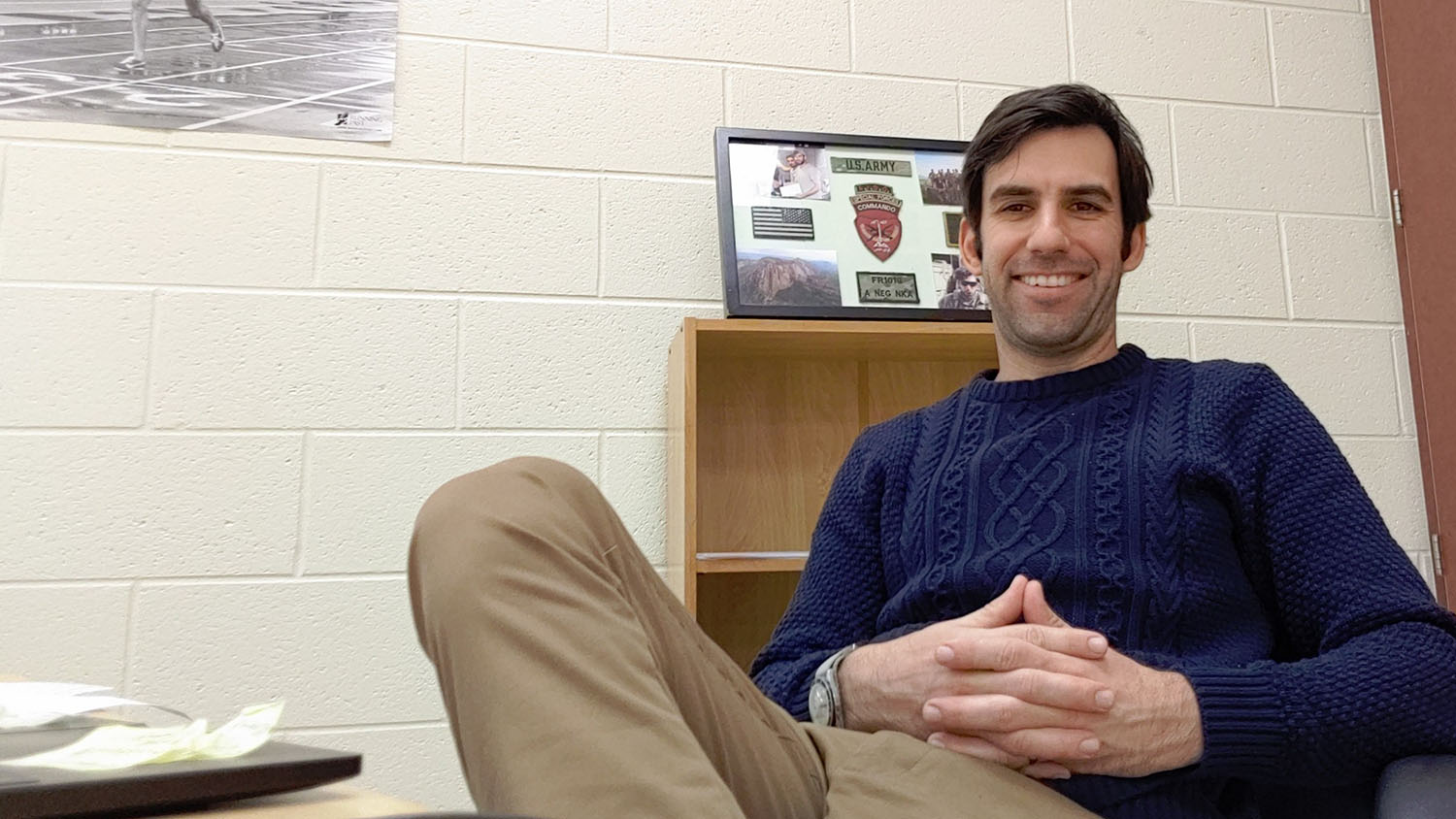Meet Dan Frankenfield ‘20MAT: ‘The Most Fulfilling Aspects of the Military For Me Involved Either Teaching Skills to Others or Imparting Guidance on Younger Soldiers’

This is part of a series of profiles on students who are graduating in December 2020.
While serving in the United States Army, Dan Frankenfield ‘20MAT spent a significant amount of time at Fort Bragg in North Carolina, where he was assigned as a psychological operations specialist. While deployed, he worked with teams in Special Forces, where he learned firsthand the importance of relationship building — a skill he uses daily in his middle school classroom. 
Looking back on his military service, the most fulfilling experiences, Frankenfield says, were his involvement with either teaching skills to others or imparting guidance on younger soldiers. That inspired him to pursue a Master of Arts in Teaching in the special education content area.
Learn more about Dan Frankenfield.
Hometown: Doylestown, Pennsylvania
Area of Study: MAT in Special Education
Activities/Interests: I spend my free time riding and repairing old racing bicycles.
Why did you choose the NC State College of Education?
I chose the NC State College of Education because I had no previous experience in the field of education and I was seeking a program that provides first-hand teaching experiences through classroom placements.
Why did you choose your area of study?
I always knew that I wanted to be an educator in some form. I chose the area of special education because both of my own children have individualized educational plans (IEPs) and I wanted to have some degree of expertise with their educational needs. Additionally, I’m drawn to the unique situations and challenges that special education presents every day.
What’s your next step? What do you have planned after graduation?
I was hired by Crain’s Creek Middle School in Moore County as a seventh grade EC [exceptional children] teacher in August and I was able to complete my internship as a full-time teacher.
How has the College of Education prepared you for that next step?
I knew that the learning curve as a first-year EC teacher would be steep, but I felt as prepared as I could have been by the program. My placement experiences were invaluable in terms of applying concepts in actual classroom settings and I was very fortunate that the cooperating teachers were so welcoming and supportive.
Tell me a little bit about your experience in the military. How will that experience help you as a future educator?
I enlisted into the U.S. Army in 2009 and left in 2018. The most significant period of time for me was spent at Fort Bragg, where I was assigned as a psychological operations specialist. Like all special operations roles, psyop is a job that involves unique and complicated problem sets in often ambiguous circumstances. When deployed, I worked with Special Forces teams in remote areas and learned firsthand the importance of relationship building, not just with the local partner forces but also with the villagers we interacted with daily. Without some measure of mutual trust and understanding, nothing meaningful could be accomplished. I am finding the same to be true in special education. The time that I’ve spent building relationships with the students on my caseload has paid dividends in their commitment to school each day.
What inspired you to become a teacher?
I can’t say that there was any one person or event that inspired me to be a teacher. I can say that the most fulfilling aspects of the military for me involved either teaching skills to others or imparting guidance on younger soldiers. Truth be told, I was not an excellent student growing up. It took me a long time to develop the self-discipline and academic skills necessary and I always felt my educational calling might be to help students develop those habits and skills sooner than I did.
Tell us about an experience you had with the College of Education that had the biggest impact on you or your career.
The most impactful experience I had in the program was seeing a student who was the basis of a semester-long behavioral intervention project surpass my expectations. His progress within the intervention factored into the decision to begin his transition into the general education classroom setting for portions of the school day. Two months later, I was asked to be a long-term substitute teacher in that same self-contained classroom and I was able to observe the student maintain his progress.
- Categories:


